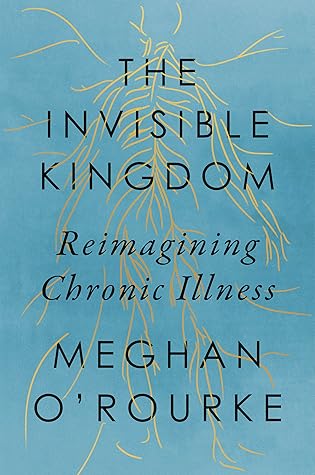More on this book
Community
Kindle Notes & Highlights
It felt shameful to need other people so much.
When, I wondered, had I last yearned for something other than simply feeling better?
It was more like a soul going limp, a steady drain of energy and of will.
It is when we lose longing that we lose being.
I wondered whether I could—even should—accept the fact that my body was slowly and inexorably failing.
How could I get better if no one thought I was sick?
Before I’d gotten sick, I assumed that the medical system would care for me as well as it possibly could, with the entire objective rigor science could muster.
A body with symptoms that are not medically identifiable is a body communicating psychological issues: this idea is subconsciously present in exam rooms today, even if physicians are not actively quoting Freud
And so today, when a woman enters a doctor’s office, with its sleek antiseptic surfaces and its precise tools, she is still entering a space that views the female body experiencing intermittent symptoms like fatigue and anxiety and pain as one that is expressing something psychological.
Autoimmunity, fibromyalgia, chronic Lyme, ME/CFS—these are today’s hysteria.
The mechanisms of the immune system, I marveled, were impossibly complex, even elegant, and still not fully knowable.
Chemical companies in the United States are not compelled to disclose whether the substances they work with cause immunological dysfunction.
As Noel Rose, the father of autoimmune disease research, described it to me, “genetics are the gun; a virus pulls the trigger.”
I lived in a culture that promotes the importance of triumph over adversity— a culture that insists on recovery.
There is one certainty for those of us at the edge of medical knowledge, though: we live in the gap together.
I had found the doctor I would stay with. The uncertainties did not lead her to believe I was not ill; they led her to believe science did not yet fully understand the contours of what was making me ill.
It is hard to know what happened when, because for so long I wasn’t sure that I was sick. Sometimes I wonder, had I always been sick, since I was a child with aching knees and bouts of exhaustion?
Maybe exhaustion, combined with the virus I caught, was the tipping point, one hit too many to my immune system, after which whatever was already going on snowballed unstoppably downward.
Sapolsky points out that the human body responds to anticipated and imagined stress as if it is lived stress.
Our subconscious takes our conscious fears seriously, and adjusts our biology accordingly.
Since then, most studies have suggested that positive thinking does not lead to better outcomes with breast cancer.
psychoneuroimmunology, which looks at how thoughts and unconscious priming do influence immune expression in ways that go far beyond the effects of stress.
What I liked about Langer was the way she made room for mystery and clarified that if thoughts have any role in modulating illness, it isn’t a simple one.
I wanted to show how the emphasis on the psychological nature of chronic illness in a culture that pathologizes the failure to “overcome” robbed people of grace, while instructing them to suffer their illness with grace.
But a low pilot flame of myself kept insisting, I’m here, I want to get better.
I had long been haunted by the idea that something was wrong with me that could be fixed, that the answer was out there, right in front of us, but no one else was looking for it.
But I had not anticipated what should have been my biggest fear of all: that I would lose hope.
I woke early and sat on the couch, clicking through recipes I didn’t have the energy to make,
And no one wants to get better more than I do. Can’t you see that I am desperate? I feel like my life is over, and no one is helping me.”
I wanted to be analytical about what was happening to me. But I now felt so optionless I was willing to do things that seemed less and less likely to pan out.
I once had ambition and yearned to write; now I only wanted the pain and fog to lift.
When I got my inconclusive diagnosis, I knew better than to dream of a quick cure. But I had no idea how extreme the roller coaster of uncertainty would be.
Even so, I remained haunted by what I didn’t know about my own illness.
Why do we have a system that’s so quick to distrust the very people it serves?”
understanding that the deepest meanings come from our contact with that portal between control and submission.
“My visions of a future I can create have been honed by the lessons of my limitations.”
When I was at my sickest, there was little room for understanding, only for discomfort.
To become chronically ill is not only to have a disease that you have to manage, but to have a new story about yourself,


